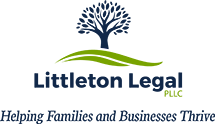Divorce is rarely simple. When two people’s lives are intertwined—physically, emotionally, and legally—separating the individual…
Estate Planning Lessons from Ann Patchett’s “The Dutch House”
Thanks to Magic City Books’ Modern Masters Series, Tulsa is welcoming beloved novelist Ann Patchett to discuss her newest novel The Dutch House on March 25. The Dutch House is the tale of the special bond between two siblings, Danny and Maeve Conroy, as they navigate the abandonment of their mother, the challenges of a seemingly heartless stepmother, and the death of their father. Although Patchett’s compassionate portrayal of this unconventional family’s story would have kept me engrossed in the story regardless, the estate planning attorney in me couldn’t put the book down. The Conroy family is a fantastic example of how relationships and businesses can unravel without a thoughtful plan in place to protect one’s loved ones and legacy.
Danny and Maeve’s father, Cyril Conroy, is a self-made entrepreneur who created significant wealth through strategic real estate investments after World War II. He purchases the eponymous Dutch House, an ornate 1920s-era mansion in the suburbs of Philadelphia. Although the house was meant as a surprise gift for his wife Elna, it sparks the unraveling of the Conroy family.
After Elna abandons her family, Cyril remarries the much younger Andrea. Andrea and her two young children move into the Dutch House. Predictably, the relationship between Danny, Maeve and Andrea is tense. When Cyril unexpectedly passes a couple of years into his second marriage, the situation gets much worse. Tragically for Danny and Maeve, Andrea had persuaded Cyril to transfer his home and business into their joint names prior to his death.
The narrator assumes that Cyril made his choices trusting Andrea to take care of the blended family as if they were her own. However, Andrea quickly makes clear she has other intentions. Despite Danny being in high school and Maeve newly graduated from college, Andrea banishes them both from their childhood home. Even though Cyril had been training Danny to take over the family business and Maeve volunteers to manage the company in the interim, Andrea also cuts them off from involvement in their father’s business.
Although he failed to complete even a Last Will & Testament, Cyril did create an irrevocable common trust intended to pay for the education of Danny and Andrea’s younger children. As an act of protest, Maeve convinces Danny to spend down as much of the trust as possible at expensive private high schools, college, and medical school – despite the fact that Danny has no interest in practicing medicine. Their goal is to leave as little as possible in this trust for Andrea’s children.
You’ll have to read The Dutch House for the details of Danny’s and Maeve’s touching journey to create their own meaningful futures while struggling to reconcile their hurtful pasts, but I’m sharing six key estate planning lessons you can learn from the novel here:
1. Assets owned prior to marriage are separate property unless and until you add a new spouse as a co-owner. When Cyril added Andrea to the deed on the house and as the co-owner of the LLC, he circumvented his children in his new wife’s favor and converted premarital property to marital property, significantly limiting Danny and Maeve’s rights. Sometimes this is actually the goal, but it isn’t something you should do without understanding the consequences for your whole family.
2. If an asset is owned in joint tenancy with right of survivorship it means the last owner alive has 100% ownership and legal control of the property – regardless of the actual intent of the parties. Sometimes people do this for convenience hoping to avoid probate or guardianship proceedings upon their death or incapacity. However, you have much more flexibility to manage different outcomes in the best interest of your entire family if you instead hold property in a revocable living trust. The trust can provide guidelines for asset management when you can no longer act on your own behalf.
3. If you own a business, you need to have a business succession plan in place to transfer ownership and control to key people when that time comes. If the bulk of your wealth is owned in the business, it can take some creativity to think through how to allocate your estate fairly to the family members who won’t be involved or haven’t worked in the business. An estate planning and business attorney can be helpful in exploring options.
4. Asset protection trusts, like the education trust described in The Dutch House, can be a very useful tool to provide for a specific need and/or communicate a specific value or goal to your heirs. However, a “common pot” trust can be abused if there is significant inequality among distributions without reasonableness. Carefully thinking through your goals and drafting the governing document accordingly can help ensure your intent is honored. Although this wouldn’t have been available to the Conroys, today we can also use trust protectors and distribution advisors to help accomplish the original objectives while being responsive to changing circumstances and laws.
5. Failure to plan for your death or disability can cause unexpected and unintended consequences that can be especially disastrous when family dynamics are complicated or strained. However, a custom estate plan designed to reflect your family’s unique challenges, needs and goals can encourage family unity and protect the legacy you wish to leave. Once your estate plan is in place, you should review it every few years to make sure the plan reflects your current circumstances.
6. Your choice of attorney matters! Cyril’s attorney failed to properly warn him about the disaster in the making. An estate plan is more than just documents, like a Deed or Last Will and Testament. Choose an estate planning attorney who takes time to understand you and your family and has a comprehensive, wholistic approach to planning. Your plan will work even better if your attorney, accountant, and financial advisor have the chance to collaborate. Hire an attorney who understands that you’re looking for peace of mind and the ability to influence your family’s destiny.
If you think it’s time to review or consider your own estate plan or business succession plan, we’re here to help! Give us a call today to learn about your options.



